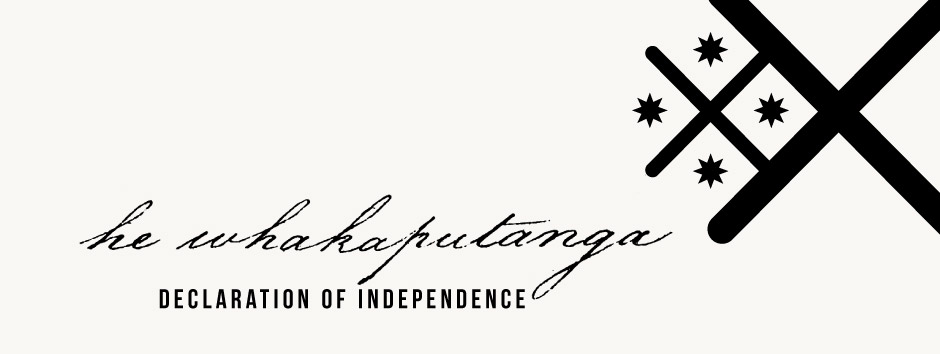Signing details
Te Ngere, also known as Hōri Te Ngere, was the father of Haki and Ngatemorenga (possibly Te Morenga) and a relative of Hōri Maka Te Ngere. Te Ngere and his hapū are said to have come from Tautoro, south of Kaikohe in the Taiāmai region of inland Pēwhairangi (Bay of Islands). Historians Bruce Stirling and Richard Towers note that Te Ngere and his people are also associated with the east-coast regions of Whangaruru and Te Ruatahi.
Te Ngere signed He Whakaputanga on 28 October 1835 alongside Wharau, who was also associated with Whangaruru.
Around this time Te Ngere’s sons Haki and Ngatemorenga signed a deed for 20 acres (8 hectares) of land at Waimate North, which was hotly disputed by their father. Haki told a November 1842 Land Claims Commission hearing that Te Ngere 'was angry that we sold the land to Europeans, he wished us to let it lie and use it ourselves.' [1]
Te Ngere also had a connection at Whananaki, thanks to an invitation from the longerterm residents there, Ngāti Manaia. It is said that Te Ngere’s father 'lived undisturbed in that vicinity' in the 1820s, and that Te Ngere owned a 19-ton cutter called Nymph, which carried both people and supplies to and from Whananaki during the 1850s. [2]
As Rowan Tautari explains in her MA thesis on Whananaki, ownership of the area was contentious thanks to the upheaval of the ‘musket wars’ period and British settlement. In 1836 a violent dispute erupted on the Waitangi grounds of James Busby’s house over access to timber at Whananaki. It is not known whether Te Ngere was present, but during a hui at Waitangi to discuss the issue, gunfire broke out between fellow He Whakaputanga signatory Waikato and a group of Ngāti Manu. As a result, when Busby made printed copies of He Whakaputanga, he removed Waikato’s name.
Later, in 1850, Te Ngere lamented the loss of land at Whananaki as the result of an earlier land claims investigation. Writing to resident magistrate Edward Williams (the son of Henry Williams), he commented: 'Indeed this is an evil thing, this handing over of homes for the Pakeha and I say to you, sir, that I am displeased that land should be sold.' [3] In order to secure land for his hapū, in 1864 he offered to buy back the entire block from the Crown, but his offer was ignored in favour of Pākehā settlement.
In the late 1860s Hōri Maka Te Ngere was listed on the government’s ‘register of chiefs’ as a leader of the Te Whānau Whero community at Whananaki. It noted that he and his people were originally from Tautoro and that he was aged forty, which suggests that the senior Hōri Te Ngere may have died by this time.
[1] ACFC 16153 OLC1 Box 15/ OLC334 ‘Case files [John Macquarie Palmer, Bay of Islands]’, Archives New Zealand.
[2] BAVX 4817 A1128 Box 24D, ‘Papers – January 1854 to December 1864’, Archives New Zealand, Auckland Office.
[3] Quoted in Bruce Stirling and Richard Towers, ‘Not With the Sword But With the Pen: The Taking of the Northland Old Land Claims. Part 1: Historical Overview’, Waitangi Tribunal Research Report, WAI 1040, A009, 2007, p.1754.


Community contributions